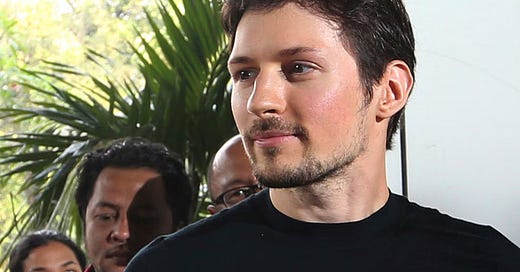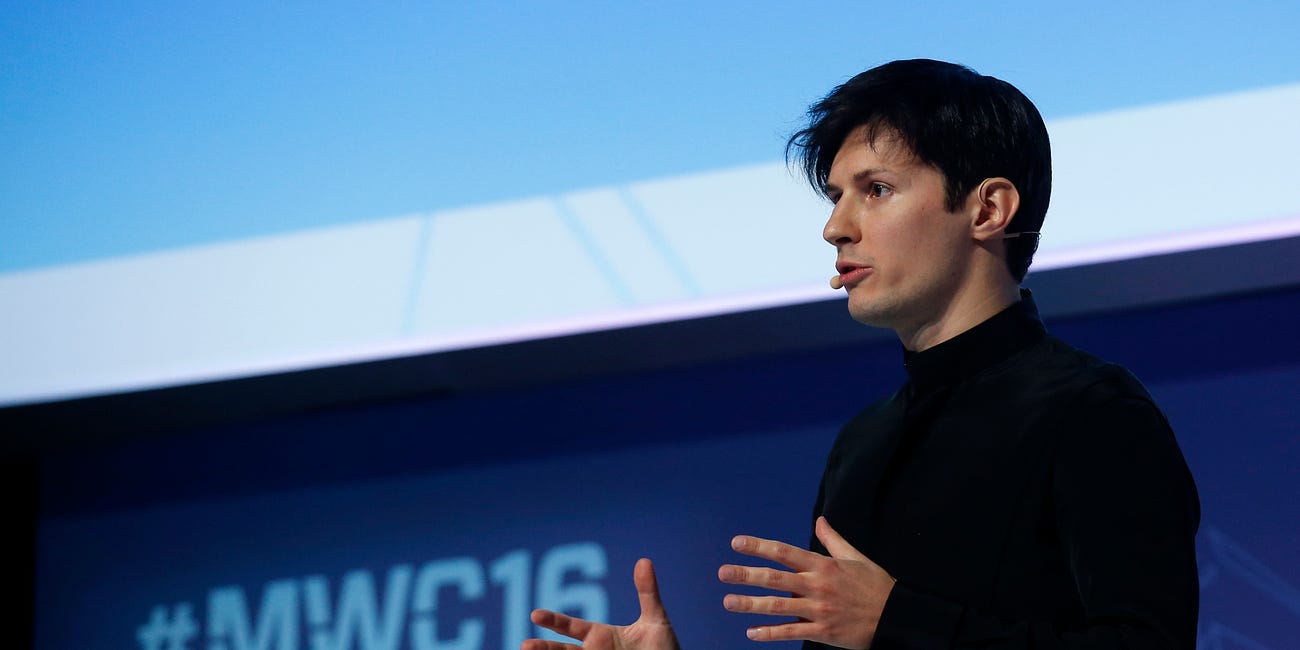Pavel Durov’s Arrest and Bail: Can't Leave France
A Landmark Case Setting Precedents for Tech Regulation in Europe— Free Speech Versus Criminal Culpability. Implications for India.
Introduction: A Shockwave in the Tech World
The arrest of Pavel Durov, CEO of Telegram, in France has sent shockwaves through the tech industry, raising profound questions about the responsibilities of tech platforms and the power of governments to regulate global digital communication. Durov, a Russian-born entrepreneur who has become a symbol of free speech and digital privacy, faces serious charges, including complicity in the distribution of child sexual abuse material and aiding organised crime through his messaging app, Telegram. The case has ignited a fierce debate on the balance between privacy, freedom of expression, and law enforcement.
Released on Bail—Pavel Durov’s Legal Troubles are Far from Over
French authorities have taken a significant step by handing preliminary charges to Telegram CEO Pavel Durov for allegedly allowing criminal activity on his messaging app. Detained on Saturday at Le Bourget airport outside Paris, Durov was released after four days of intensive questioning but barred from leaving France pending further investigation. The charges filed against him are severe, including allegations that Telegram has been used for distributing child sexual abuse material and drug trafficking. The Paris prosecutor's office has accused Durov of complicity in managing an online platform that facilitates illicit transactions by an organised group, a crime that could lead to a prison sentence of up to 10 years and a fine of 500,000 euros. As a French citizen, Durov is required to report to a police station twice a week and has been ordered to pay a 5 million euro bail.
A Global Controversy: Free Speech vs. Accountability
The arrest and subsequent charging of Pavel Durov have sparked a global debate on the responsibilities of tech platforms and the balance between free speech and accountability. Durov’s case has attracted support from both free-speech advocates and authoritarian governments, each highlighting the complexities of policing illegal activities online. His unique background and multiple passports add further intrigue to his detention. Durov’s lawyer, David-Olivier Kaminski, has criticised the charges as "absurd," arguing that a social network operator should not be held responsible for criminal activities conducted by its users.
Supporters of Durov see his arrest as an attack on freedom of expression and warn it could set a dangerous precedent, leading to increased government control over digital communication. They argue that holding the CEO personally responsible for users’ actions is both unreasonable and dangerous, especially when platforms like Telegram are used by millions for legitimate purposes.
On the other hand, child safety advocates and law enforcement officials argue that platforms like Telegram have a duty to prevent their services from being used for illegal activities. They claim that Telegram’s refusal to cooperate with investigations into serious crimes, such as child exploitation, constitutes complicity and that tech companies must be held accountable for what happens on their platforms. Despite the international outcry and the complexities of the situation, French prosecutors have maintained that Durov is currently the only person implicated in the case, although they have not ruled out the possibility of further investigations or additional arrests.
A Geopolitical Conundrum: Multiple Citizenship and International Reactions
Adding another layer of complexity to the case is Durov’s unusual biography and his multiple citizenships. Born in Russia, Durov also holds citizenship in France, the UAE, and St. Kitts and Nevis, allowing him to operate Telegram from Dubai, a neutral ground outside the influence of Western or Russian authorities. His arrest has provoked strong reactions from different parts of the world. In Russia, there has been an outcry, with officials suggesting that the arrest is politically motivated. Conversely, in countries like Iran, where Telegram is officially banned but widely used, some see the French actions as a justified measure to control the digital landscape.
Legal and Ethical Implications: A New Era of Accountability?
The legal implications of Durov's arrest are profound. It raises questions about jurisdiction and the extent to which a country can hold a tech executive responsible for activities occurring on a global platform. French authorities argue that by refusing to comply with legal requests for user data, Telegram is effectively aiding criminal activity. However, this stance challenges the principle of platform immunity, which has been a cornerstone of internet regulation, particularly in the United States under Section 230 of the Communications Decency Act.
This case could signal a new era of accountability for tech executives, particularly in Europe, where there is a growing push for stronger regulations on digital platforms. It also reflects a broader trend towards greater scrutiny of tech companies and their role in society, as governments around the world grapple with the impact of digital communication on privacy, security, and public safety.
Far-Reaching Implications for Tech and Digital Rights
The outcome of Pavel Durov’s case is expected to have significant consequences for the tech industry and digital rights worldwide. This legal battle underscores the growing tension between the necessity for law enforcement and the protection of free speech and privacy. As governments and tech companies navigate this complex and evolving landscape, Durov's arrest might be seen as a turning point in the history of internet regulation, potentially setting a precedent for how digital platforms are held accountable in the future. The case raises critical questions about the balance between security and freedom, and only time will tell whether it will lead to a more secure digital environment or restrict the freedoms that have long defined the internet era.
The Global Context: Implications for India and Beyond
Durov's case comes at a time when governments worldwide, including India, are rethinking their approach to digital communication regulation. On the same day as Durov's charges were announced, the Government of India published draft rules for the “lawful interception of messages” under the Telecommunications Act, 2023, that has replaced the outdated Indian Telegraph Act of 1885. These developments raise questions about whether Indian authorities will seek to impose stricter regulations on encrypted messaging apps like Signal and Telegram, which are renowned for their strong encryption that is virtually impenetrable by all but the most sophisticated intelligence agencies. As countries like India consider these regulatory changes, Durov's legal battle in France may serve as a case study in balancing national security concerns with digital privacy rights1.
{Breaking News}: Telegram Founder, Billionaire Pavel Durov Arrested in France on Multiple Serious Charges
Telegram Founder, Pavel Durov Arrested in France






…..interestingly, Free speech is now annoying the torch bearers of Democracy, the fundamentalists of so called Free speech on this earth planet….